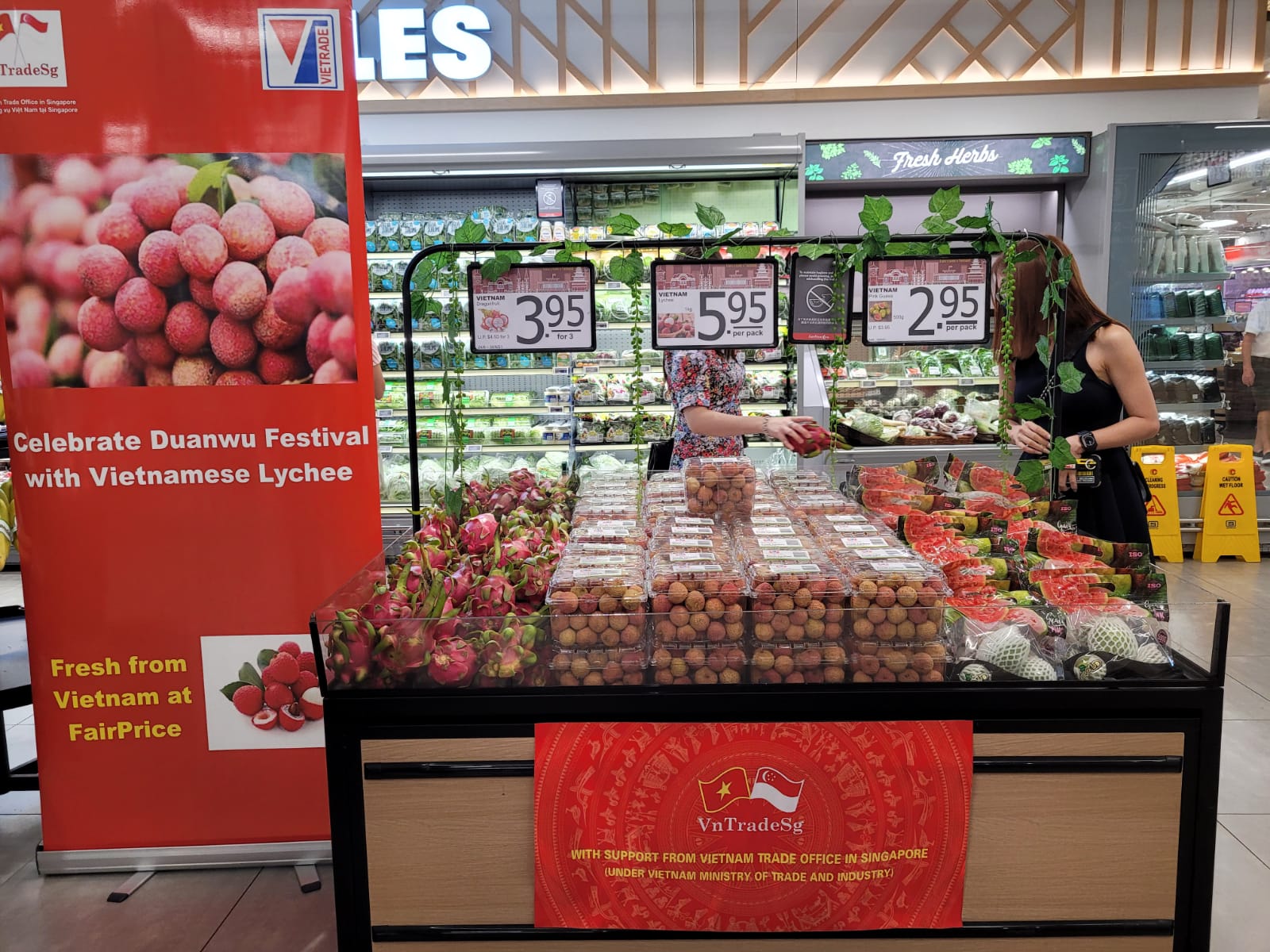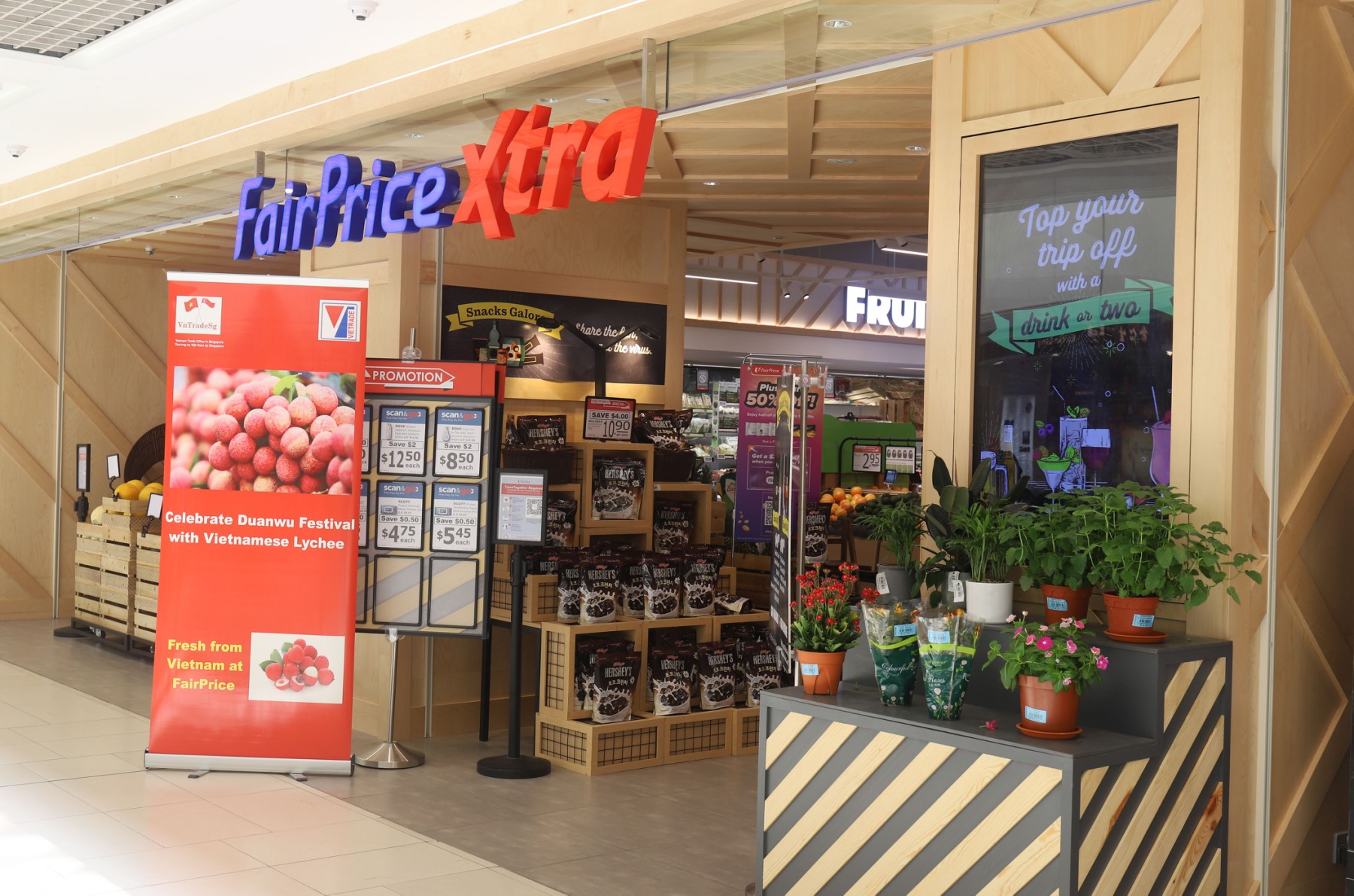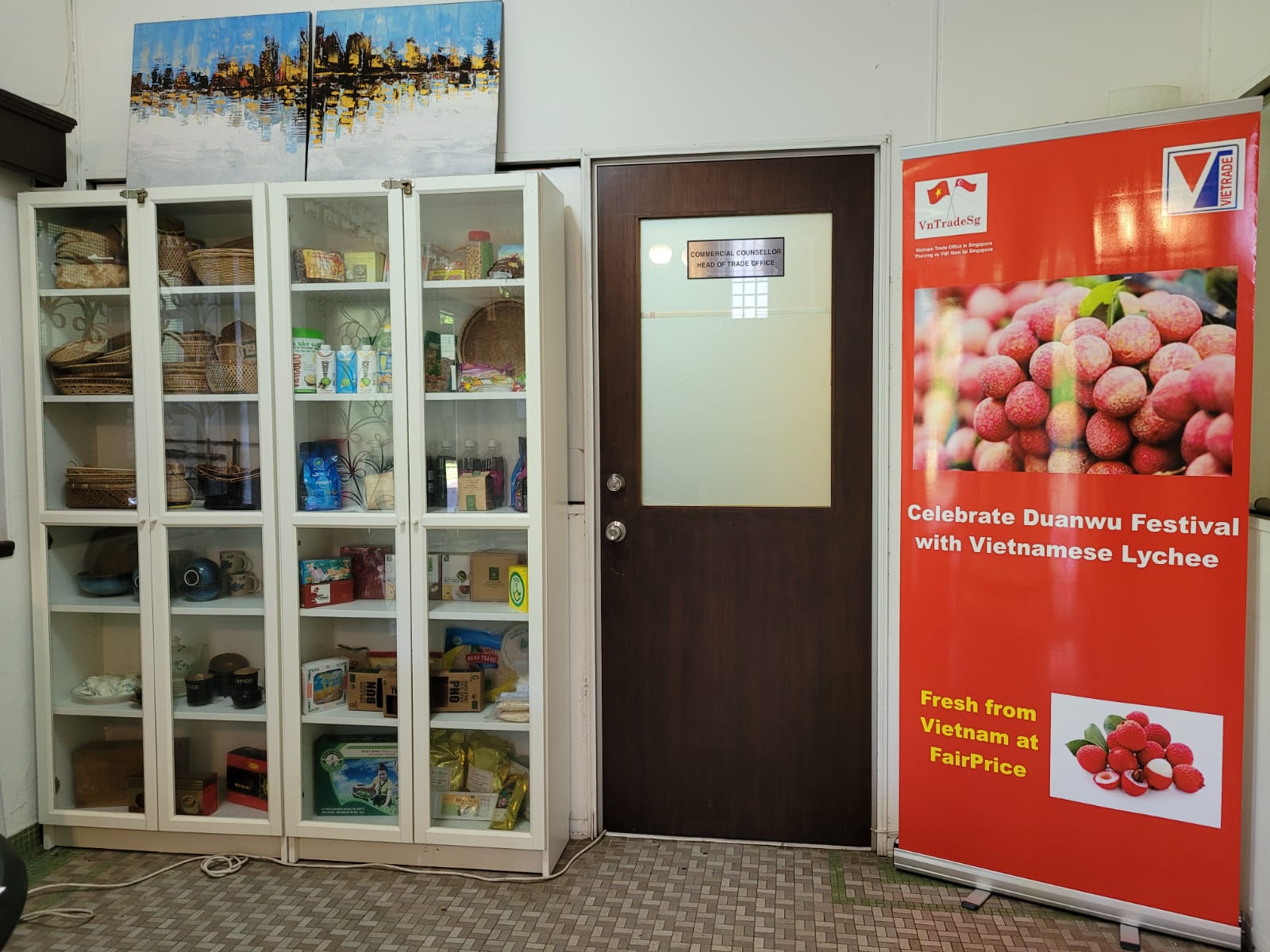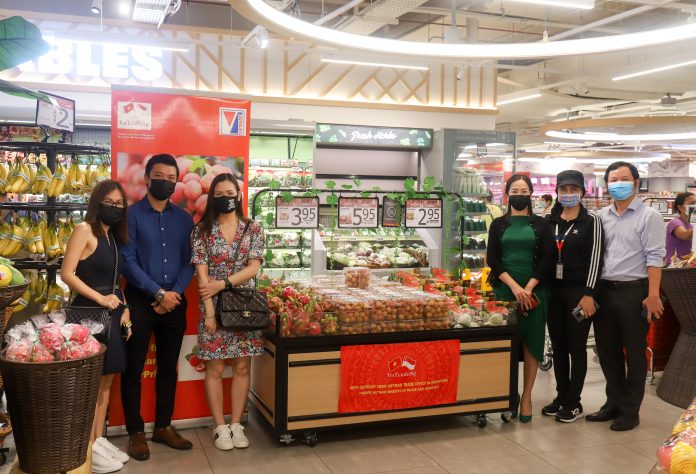Duanwu Festival is a traditional ritual observed in both Vietnamese and Singapore-Chinese cultures. This day is around the time of Xiazhi (or Haji – the time of the Summer Solstice) when the Sun is nearest to the surface of the Earth. Xiazhi (midsummer) in Vietnam is also the onslaught of heat, rainfall, humidity, mosquitoes, flies and related summer illness. Nevertheless, Xiazhi brings a myriad of delicious fruits, and among them, is the lychee. Duanwu Festival in Vietnamese culture is a celebration for harvest and worshipping ancestors, to show our gratitude to gods and our eagerness to see the bumper autumn harvest. Duanwu marks the start of a new farming season in Vietnam. In the early morning of Duanwu Day, right after waking up, people eat lychees, plums, ash cakes, and sticky rice wine to kill insects and diseases. Lychees and these Vietnamese delights are believed to help people get rid of insects and protect the crops during summer.
 Grown in Hai Duong and Bac Giang provinces, lychee is now providing a lifeline for many Vietnamese farmers. These major lychee growing localities alone, annually, harvest about 200.000 tons, equivalent to 10% of Vietnam’s lychee production destined for export. Lychees, famous for their reddish skin and delicious, jelly-like pulp, are Vietnam’s favourite summer fruit. Sweet, succulent, subtle in fragrance, lychee is crowned “Lucky fruit”, “Fruit of Love” or “Fruit of Romance” in Vietnam.
Grown in Hai Duong and Bac Giang provinces, lychee is now providing a lifeline for many Vietnamese farmers. These major lychee growing localities alone, annually, harvest about 200.000 tons, equivalent to 10% of Vietnam’s lychee production destined for export. Lychees, famous for their reddish skin and delicious, jelly-like pulp, are Vietnam’s favourite summer fruit. Sweet, succulent, subtle in fragrance, lychee is crowned “Lucky fruit”, “Fruit of Love” or “Fruit of Romance” in Vietnam.
Lychee is native to Northern Vietnam thanks to the suitable climate conditions and is believed to be indigenous to the localities along the Red River since 100 years B.C. Glossy, juicy and heavenly sweet, lychees have all in their auspicious properties and were believed to bring luck, prosperity and fertility. In the long list of healthy fruits, lychee is leading with numerous attributes: a source of dietary fibers, vitamins and minerals, pain reliever, or even a cure for cancer and kidney diseases! Lychee is a natural cosmetic to moisturize skin, reduce wrinkles, keep hair healthy, and strengthen bones…
 Over the years, lychee cultivation has spread to neighboring countries such as China, Myanmar, India and recently to Madagascar, South Africa, Mexico… The lychee trees can also be found in Singapore, with the most famous one located along Mt Rosie Road, standing at an impressive 18 meters high! (The Singapore National Parks Board has chosen this tree for preservation under the Heritage Trees Scheme).
Over the years, lychee cultivation has spread to neighboring countries such as China, Myanmar, India and recently to Madagascar, South Africa, Mexico… The lychee trees can also be found in Singapore, with the most famous one located along Mt Rosie Road, standing at an impressive 18 meters high! (The Singapore National Parks Board has chosen this tree for preservation under the Heritage Trees Scheme).
For many years, thanks to the application of VietGAP and GlobalGAP processes, the cultivation of lychee in Vietnam is now standardized. Lychee cultivation areas in Vietnam are granted specific codes for export. All these areas are monitored to control the cultivation process and to ensure product traceability. The traceability stamp allows customers to easily check and track lychee products when buying lychee from Vietnam. Thanks to these efforts, Vietnam’s lychees are gradually gaining recognition from international buyers as the best lychees in the world.
 Since 2020, Vietnam’s lychees have been imported to Singapore during the May-July season by NTUC FairPrice. Let’s celebrate together the Duanwu Festival – a convivial time for family gatherings and enjoy Vietnamese Lychee – a fruit to enhance traditional values and to tighten family links.
Since 2020, Vietnam’s lychees have been imported to Singapore during the May-July season by NTUC FairPrice. Let’s celebrate together the Duanwu Festival – a convivial time for family gatherings and enjoy Vietnamese Lychee – a fruit to enhance traditional values and to tighten family links.
Quỳnh Trần, Ph.D.
Head of Vietnam Trade Office in Singapore


















